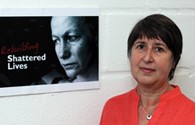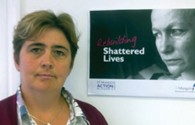More women rough sleeping in London
The latest figures are out on the number of people contacted sleeping rough in the capital last year. They show a startling 43% increase. As Kim Harper, St Mungo’s Policy, Public Affairs and Research Manager writes, the figures show too that more women slept rough in London last year.
Today the CHAIN ‘Street to Home’ annual figures for 2011-2012 were released. The number of people contacted sleeping rough has increased by a startling 43% from 3,975 in 2010-11 to 5,678 up to the end of March this year.
Many of those were able to be helped off the streets quickly by the new No Second Night Out initiative and, for longer term rough sleepers, more excellent targeted work by outreach services and innovative new services such as our award-winning accommodation The Lodge.
The figure that struck home to me, though, was that 658 of that total number were women.
658 women on the streets last year?
That’s more than the number of MPs we have.
That’s 658 women, and 284 more than last year, who reached the point where there was nowhere left to turn, no family, no friends’ sofas, no supportive council or agency able to offer a room, no service that made them feel comfortable enough to opt for that rather than the pavement and a sleeping bag.
What led almost three hundred more women to the desperate situation of having to bed down in a doorway, a park or next to an air vent for warmth and shelter?
We know from talking to our own women clients who have slept rough that it can be a complicated mix of problems – around relationship breakdowns, loss of children, abuse, maybe compounded by drug or alcohol use. We know too that over a third (34%) of St Mungo’s female clients who have slept rough said that domestic violence directly led to their homelessness.
That is why St Mungo’s has launched the Rebuilding Shattered Lives campaign to raise awareness about women’s homelessness, share good practice and drive forward lasting change.
Experts from across different charity and voluntary organisations are leading on gathering evidence from practitioners and individuals across the UK on nine themes including; domestic abuse, families and children, childhood trauma, employment and education. Our women clients will also be contributing their ideas and experiences of what works.
Imagine if those 658 women had got the help they needed, when they needed it so that there was no need for them to bed down on the streets. Stemming the flow of new people to the streets must be about more effective prevention at earlier stages – and local authorities, as well as central, putting homelessness higher up the agenda.
Join our Rebuilding Shattered Lives campaign www.rebuildingshatteredlives.org




